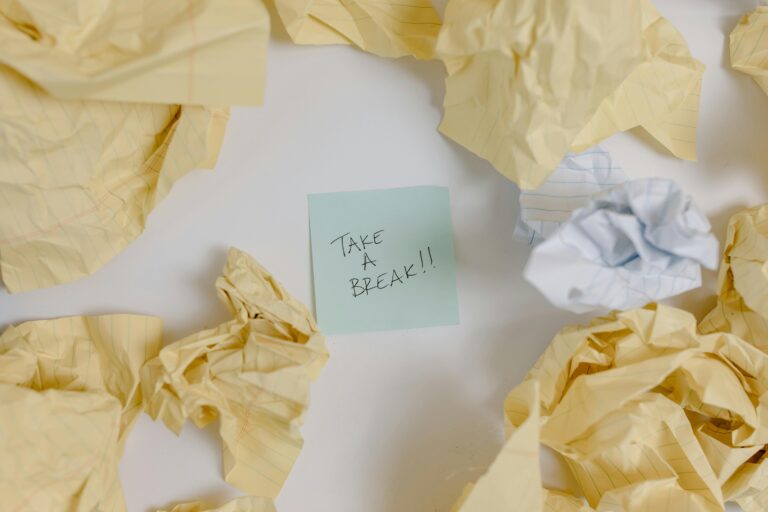How to Avoid Post-Vacation Stress
Going on vacation is important for our well-being, as a well-deserved break from work is usually associated with the summer period. We can receive psychological benefits from vacation even before the vacation as we ramp up the anticipation by planning, viewing pictures of the destination, and discussing vacation plans with others. Vacation is a period in which we often spend time relaxing in the circle of family and loved ones, away from our usual daily lives and obligations. However, as we know, that long-awaited vacation often passes quickly, and returning to work and other obligations can bring anxiety and stress.
In research studies, the post-vacation time is appropriately termed the “fade-out period,” when the positive effects begin to subside. Studies have shown this period can be anywhere from three days to four weeks after a vacation. During this period, stress gradually increases, sometimes ramping up to higher levels than pre-vacation. While the memories from the vacation can last forever, that post-vacation release might start to feel ephemeral.
If the idea of maximizing the well-being benefits of the vacation sounds appealing, then focusing on your post-vacation plan is a must. If a vacation is a superhero for our well-being, then its arch-nemesis is stress.
Prolonged experiences with stress or chronic stress can cause our amygdala to become excited. That’s a part of our brain responsible for scanning our environment for sensory information that indicates we may be in danger, which can kick off the stress response. While our brain is a wonderful and sophisticated organ, it’s not very discerning in its interpretation of danger. So, stress from the job, home, or a lion chasing us into our room is treated pretty much the same. An already-excited amygdala tends to elicit a stress response much more quickly, speeding up the vacation fade-out period.
Returning from a vacation should leave us feeling refreshed, but for many, it brings about a sense of anxiety, exhaustion, and stress. Post-vacation stress, often termed “post-vacation blues”, can diminish the positive effects of our holiday.
However, with a few strategic actions, we can make the transition back to everyday life getting back to work smoother, and maintain that vacation glow for longer. This article will outline some practical tips to help avoid post-vacation stress, based on expert opinions and research.
- Plan a Buffer Day
One of the most effective ways to ease the transition back to work or daily routines is by planning a buffer day between the return and the first day back at work. According to a survey by the American Psychological Association, 40% of Americans find that an additional day at home before returning to work helps reduce stress levels. This extra day can be used to unpack, do laundry, rest, and mentally prepare for the upcoming responsibilities. - Ease Back into the Routine
Jumping straight into our usual workload after a vacation can be overwhelming. To mitigate this, ease back into the routine by starting with simpler tasks and gradually moving to more complex ones. Research suggests that spreading out tasks over several days can help reduce stress and improve productivity. If possible, schedule the first few days back with lighter workloads, allowing some time to catch up without feeling overwhelmed. - Reflect and Relive Positive Experiences
Instead of focusing on the fact that the vacation is over, it is important to take time to reflect on the positive experiences. According to a study published in The Journal of Positive Psychology, reminiscing about happy experiences can boost our mood and reduce stress. Sharing stories, organizing photos, or even writing about your vacation can help you extend the joy and relaxation felt during the time away. - Prioritize Sleep and Nutrition
Vacations often lead to disrupted sleep patterns and dietary indulgence. On the return, prioritize getting back to a regular sleep schedule and eating balanced meals. According to the National Sleep Foundation, sleep is crucial for reducing stress and improving overall well-being. Similarly, maintaining a balanced diet can help stabilize the mood and energy levels. Also, avoiding overloading with caffeine and sugar, can lead to energy crashes and increase anxiety. - Incorporate Vacation-Like Activities into the Routine
One way to keep the vacation spirit alive is by incorporating vacation-like activities into the daily life. If we enjoy leisurely walks, relaxing by the beach, or exploring new cuisines, we can try to include similar activities in our daily routine. Research indicates that engaging in enjoyable activities regularly can reduce stress and improve life satisfaction. Even small changes, like dining at a new restaurant or taking a weekend hike, can make our regular life feel more fulfilling. - Stay Active
Physical activity is a powerful stress reliever. Exercise boosts endorphins, the body’s natural stress relievers, and can help maintain the positive mental state experienced on vacation. A study published in The Lancet highlights that regular exercise can reduce the risk of depression anxiety and stress, which are common after vacation time. Whether it’s going for a run, hitting the gym, or practicing yoga, staying active is key to reducing post-vacation stress. - Set New Goals
Setting new, exciting goals for the near future can help to shift the focus from the end of the vacation to the opportunities ahead. Whether it’s planning a next trip, starting a new project at work, or picking up a new hobby, having something to look forward to can counteract feelings of post-vacation blues. According to goal-setting theory, having clear, attainable goals increases motivation and satisfaction.
Conclusion
Post-vacation stress is a common experience, but it doesn’t have to overshadow the benefits of our time away. By planning a buffer day, easing back into your routine, reflecting on positive experiences, prioritizing sleep and nutrition, incorporating enjoyable activities, staying active, and setting new goals, we can maintain vacation happiness and reduce the stress of returning to everyday life.
These strategies are not only supported by research, but are also practical and easy to implement, helping us to continue feeling refreshed long after our vacation ends.









